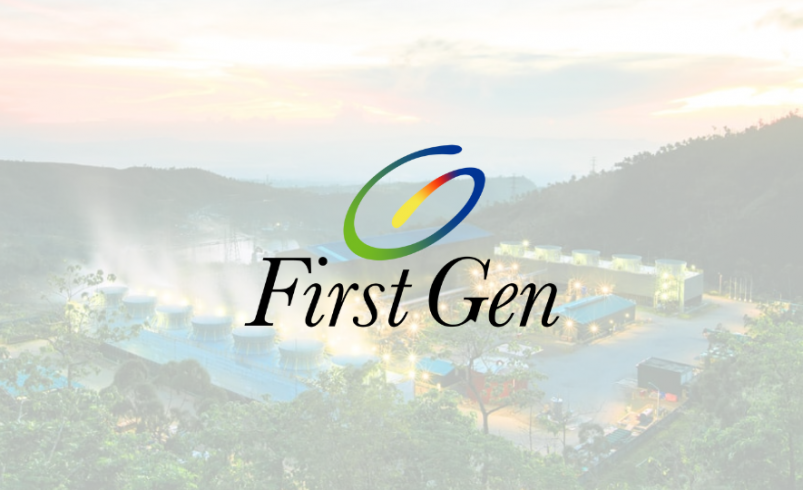First Gen calls for policy reform to unlock more geothermal projects
- October 28, 2025
- 0

Geothermal energy may be one of the world’s oldest clean power sources, but First Gen Corporation believes its best years are still ahead.
Jay Joel L. Soriano, First Gen’s Vice President and Head of Strategy and Planning, urged the government to help de-risk geothermal investments and update energy policies to reflect the technology’s true value.
“If you look at geothermal in particular and compare it with other technologies, our costs are heavily skewed up front. We’re always in remote areas. And I hope that as we explore and deploy these projects, the government recognizes that we need support in managing the risk,” Soriano told reporters on the sidelines of the Asia Clean Energy Summit (ACES).
“If government can help us de-risk that upfront investment, it will pave the way for more developments,” he said.
Soriano, who presented “Powering the Future: Achieving 24/7 Renewable Energy as the Key to Decarbonizing and Going Net Zero” at ACES, said geothermal remains the most reliable renewable resource in the country, capable of producing baseload power 24 hours a day, seven days a week.
“If we want more geothermal in the mix, regulations must recognize its uniqueness — its upfront capital intensity, its baseload reliability, and its long lifetime of service,” he said.
He added that regulatory frameworks still treat geothermal like fossil fuels. The Energy Regulatory Commission (ERC) applies pricing models designed for thermal plants, which fail to reflect geothermal’s long payback period and high capital cost.
“It’s like asking a marathoner to race under sprinter rules — they’re built differently, but both are athletes we need,” he said.
Despite its value as a 24/7 clean energy source, geothermal was only included in the Green Energy Auction Program (GEA) during its fourth round in 2025—nearly two decades after the Renewable Energy Act was passed.
“It wasn’t until this round of the Green Energy Auction that we were included in the GEAP — the fourth round, even though we’ve done three rounds already. I say that because I think we still need support to expand our footprint, not just here in the Philippines but also in Indonesia, where from a technology standpoint, we’re seeing that, yes, traditional geothermal technology still makes sense. But to expand and retain our leadership position, we need stronger support,” he said.
Innovation Below the Surface
First Gen is also investing in new technologies such as low-enthalpy and closed-loop systems to modernize geothermal operations. The company is testing low-enthalpy systems in Leyte, designed to harness lower-temperature reservoirs and acidic fluids that traditional systems cannot handle.
“Low-enthalpy and closed-loop cycles can expand opportunities beyond the traditional high-temperature sites we rely on today,” he said.
If successful, these emerging technologies could unlock thousands of untapped megawatts across the country, extending geothermal’s reach far beyond high-enthalpy regions like Leyte and Albay.
Amacan Leads a New Chapter
The company is preparing to drill its Amacan geothermal site in the Davao region, a greenfield project estimated at more than 70 megawatts — the first new development of its kind in years.
It is also planning the redevelopment of the 40-year-old Upper Mahiao plant in Leyte, which will be decommissioned to make way for a modern, high-efficiency facility, alongside upgrades of the Bacon-Manito (Bac-Man) geothermal complex.
“We want to build power plants that match the reservoir’s characteristics and can last for decades,” he said.
The 24/7 Renewable Portfolio
First Gen is the Philippines’ largest renewable energy producer and the only major player with a zero-coal portfolio.
Its renewable platforms — geothermal, hydro, solar, wind, and battery storage — work together to deliver clean, reliable, and affordable energy.
“Geothermal and hydro provide steady baseload power. Solar and wind act as complements. Hydro and storage handle balancing,” he said.
This integrated approach, he added, is the model for countries aiming to maintain energy stability while transitioning to cleaner systems.
A Call for Recognition
He stressed that geothermal is not an outdated relic of the past but the steady heartbeat of a renewable grid.
“It doesn’t depend on the weather. It runs 24 hours a day, seven days a week,” he said.
With policy reforms, risk-sharing mechanisms, and investment in new technologies, Soriano believes the Philippines can reclaim its status as a global geothermal leader.
Follow Power Philippines on Facebook and LinkedIn for more updates on geothermal innovation, policy reform, and the country’s clean energy transition.